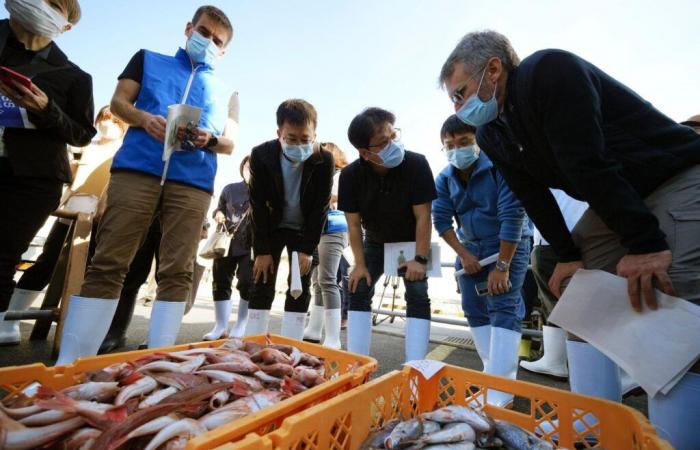Taiwan will ease restrictions on Japanese food imports, including seafood from areas near the stricken Fukushima nuclear power plant, Japan’s agriculture, forestry and fisheries ministry said Wednesday.
“Taiwanese authorities today announced the easing of import controls on Japanese food products, introduced following the accident at the Fukushima nuclear power plant.” affected by the 2011 tsunami, a ministry statement said.
Taiwan’s move involves lifting import bans on products such as wild bird meat and mushrooms from five regions, including Fukushima, provided that radioactive material inspection reports and certificates of origin are presented, he said.
Seafood from Iwate and Miyagi prefectures in the northeast near Fukushima can be exported “without radioactive materials inspection report”.
AFP was unable to immediately confirm the information with Taiwanese authorities.
Japanese Minister of Agriculture, Forestry and Fisheries Tetsushi Sakamoto said he “welcomed this measure as a positive step in promoting the recovery of disaster-affected areas”.
The ministry’s statement said Japanese authorities will continue to work to ensure all remaining restrictions are lifted.
The announcement comes after China’s announcement on Friday. Beijing decided to gradually resume “imports of Japanese seafood products, suspended in 2023 after the discharge into the Pacific Ocean of treated water from the damaged Fukushima nuclear power plant.
In late August 2023, Japan began dumping wastewater from the Fukushima plant, a decision Beijing described as “selfish” and immediately suspended all imports of seafood.
Shortly after, Russia applied the same suspension as “precautionary measure”On Friday, one of its senior health officials, quoted by the Tass agency, indicated that the measure was being maintained.
In 2022, China imported more than 460 million euros worth of seafood from its Japanese neighbor, according to Customs figures.






